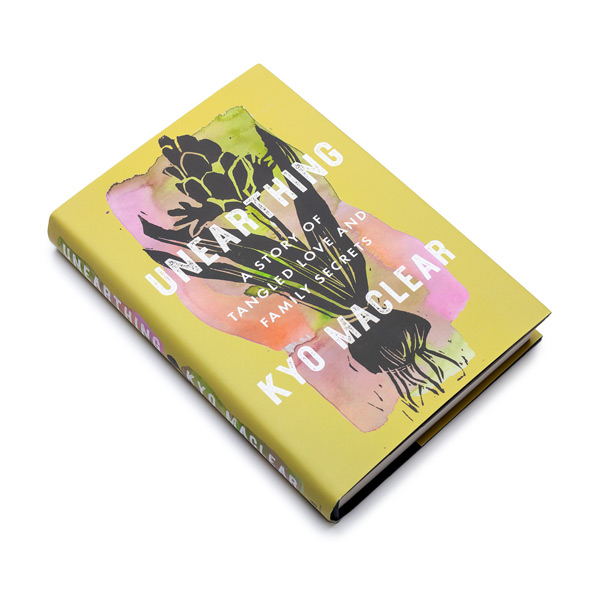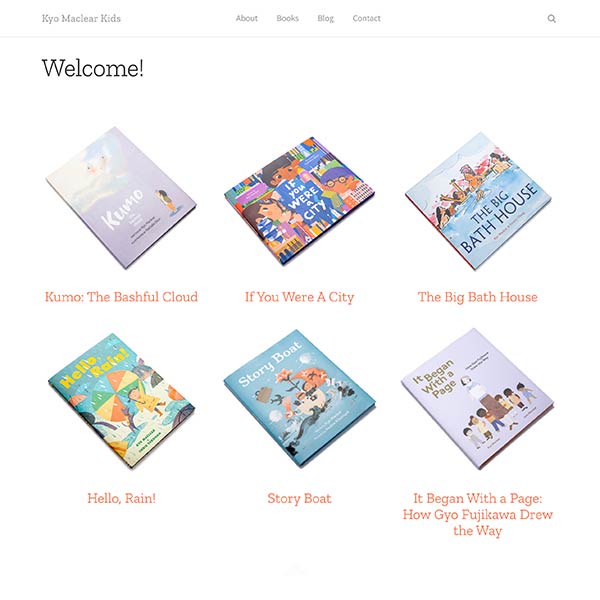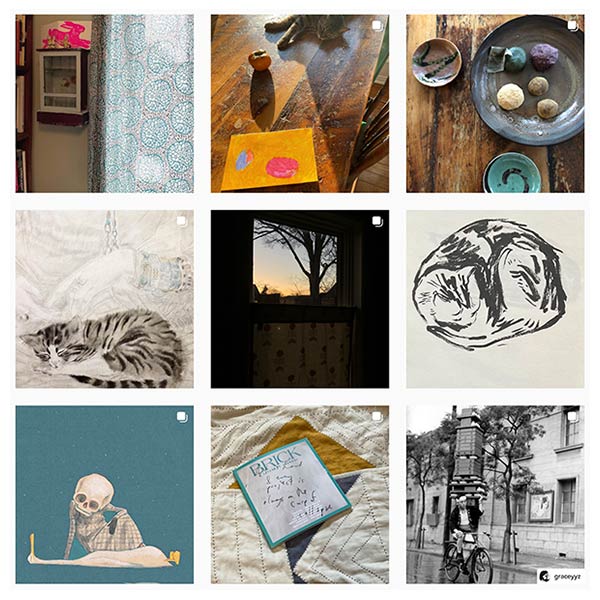Much of The Letter Opener takes place in the Undeliverable Mail Office, a warehouse that “resembles a giant pawnshop.” What research did you undertake to render the details and feel of this unusual place?
I have never worked in a post office, though I sometimes think that being a letter carrier would suit my temperament — I like walking, I like solitude. I was originally drawn to the symbolism of the setting, the psychological and historical richness of an Undeliverable Mail Office. Once I determined that the story would be set there, I made arrangements to visit an actual mail recovery centre in Mississauga and spent an afternoon observing the detective-manner of the employees, the serried rows of objects, the buckets of errant mail. Something about the place spoke to me on a gut level. Its attempt at order. Its massiveness. Yet also its humanness. Beyond that research visit, I also read what I could find on dead letter offices, which surprisingly wasn’t very much. I reread Herman Melville’s classic story “Bartleby the Scrivener” (the despondent Bartleby was said to have once been employed as a dead letter office clerk). But mostly, I embellished by drawing on other mausoleum-like places I have known. Antique emporiums. Library archives. The Musée de Cluny in Paris. It’s a kind of obvious necrophilia, I suppose, but I do find something numinous in the experience of being among aged and ancient objects.
One is reminded when reading your novel that everyday objects and personal effects have significance as touchstones for memories, and even as talismans. What objects, lost or found, personal or public, hold meaning for you?
Strangely, I grew up in a family of few heirlooms. I think that part of this can be attributed to the fact that both of my parents came from families of modest means and grew up in the tumult of Second World War. I also have a theory that when my parents decided to leave their cultures of origin, they made a resolution to travel lightly — hoping to experience the tabula rasa effect of resettlement. Once they arrived in Canada, it was quite a different story. By the mid-1970s, my parents entered a period of rapid accumulation. My mother, who started an art gallery, collected Japanese prints, and later antiques; and my father, who was traveling constantly as a journalist, collected, along with stories, handcrafted objects from around the world. The benefit of having grown up in such an eclectic home is that I was often surrounded by the most incredible and eccentric objects — yet, oddly, few of those items stand out in my memory today. I think what I carry from my childhood is the gestalt of a house crammed with beautiful things, which is probably why I’m drawn to flea markets and why I’ll never be a minimalist. My idea of heaven is a souk on a warm afternoon.
My children both have “loveys”— or what psychologists sometimes referred to as “security” or “transitional” objects. My transitional objects are books. I’m a sucker for beautiful monographs and chapbooks with interesting images and typography. But I have to say that the books that mean the most to me are the ones that were given to me by close friends and family. They don’t substitute for the people I love, but they have, on occasion, kept me company and given me tangible comfort.
Your novel features Andrei, a Romanian refugee. Having grown up in Canada yourself, what moved you to write about the immigrant experience?
I grew up in Toronto but I was born in England to a British father and Japanese mother. When we came to Canada, we were all new immigrants with no real ties to our new home. Fortunately, my father had a job placement with the CBC, which provided a comfortable cushion for our landing. In that sense, we did not have the typical immigrant experience. We did not face many of the uncertainties and hardscrabble realities of life in a foreign land.
That said, the thing about being of mixed-race ancestry, I’ve realized, is that one never fully “arrives” or becomes “settled” in the traditional sense. A hybrid house is a compression of influence, a constant negotiation of language and custom. When you’re a person of mixed descent, words such as roots and homeland are immediately denaturalized.
Growing up in the 1970s and 1980s in Canada, and spending summers in Japan, I often felt as though I was on the outside looking in. Depending on the context, that can be a fairly painful and lonely place. But, as it turns out, inhabiting a cultural boundary is actually a good place for a writer. It means being constantly on your toes, in a state of perpetual observation. I think this vantage point has been formative in drawing me to the stories and experiences of people who feel they don’t quite belong, or feel they belong in many places at once, those who stand outside national narratives by virtue of who they are.
In The Letter Opener, I derived a certain pleasure from playing with racial expectations in the characters of Andrei and Naiko, in terms of who typically gets cast in the role of “the immigrant” and who tends to fit the profile of “the Canadian.” It was clear from the beginning that I wanted to avoid a simplifying savior motif — the notion that an immigrant arrives to an open and rescuing embrace. My intention was to explore an empathetic relationship between the two characters, not a flawless one.
Your protagonist Naiko struggles to deal with her mother’s declining cognitive abilities due to Alzheimer’s. What are your thoughts on memory and how it defines us?
Let me say here that I have no direct experience with Alzheimer’s in my family, but having watched families undergo the ordeal, I feel I have gained a few limited insights.
I don’t think it is overstating matters to say that memory is what gives us our identity. We rely on memories for a sense of continuity. When a memory is revised or lost, our self-perception can be affected in ways that can leave us feeling lost, upset or angry. Think about how unhinging it can be to forget the name of a person in your personal photo album or school yearbook, especially someone with whom you once were on intimate terms. Then imagine that you are the one being forgotten; that your mother is quizzing you, “How are we related, again?” What happens when a former relationship is irretrievably altered by memory loss — say, through dementia or emotional amnesia?
There is a kind of doubling that occurs in the novel between Naiko’s mother and Andrei, both of whom feel that they are losing a foothold in worlds they once knew deeply. The way Naiko’s mother reacts to this sense of flux and uncertainty is to grab hold of the material world. She becomes a hoarder. Rather than see her response through the medical lens of “obsession,” I try to humanize it by setting her behavior in a wider context and by showing that there can be moments of grace, humour and intense connection even in the midst of a devastating memory illness. I also wanted to explore this idea of “letting go” and whether there are times when forgetting is a necessary and even healthy condition of life.
What place, if any, does the old-fashioned letter have in this electronic age?
I grew up writing letters because it was expected of me. All of our relatives were in other countries, and it fell upon me to keep in touch. I have since learned that many immigrant families delegate this job of keeping in touch to the children of the house. Now that many of my relatives have e-mail accounts, my list of traditional pen pals has dwindled to two — a step-grandmother living in Brighton, England, and a friend in Toronto with whom I continue an erratic but satisfying correspondence.
My six-year-old son recently cottoned on to the whole letter-writing idea. To him, dropping an envelope in a red and blue box and having it appear two days later in your home mailbox is a kind of magic — on par with pulling rabbits from hats. When I see his excitement, a part of me thinks, How quaint. You see, my son still doesn’t know that letters are “old-fashioned.” He has no idea that letters have become the ascot or bowler hat of communication media, that to partake of a dying trend is to be ascribed with an aura of outmodedness and — worse! — affectation. Because I have a sentimental streak, I sometimes wonder if either of my children will ever have the opportunity to send a handwritten love letter without feeling pompous or ironic. I feel fortunate that I was born early enough to have had the experience of conducting deep friendships and romances by surface mail. I’ll never forget the experience of receiving a letter from my husband-to-be when I was staying for a time with an uncle in Mallorca. Nothing can replace the tactile significance of holding and reading a letter sent from someone you desire.
Having said all this, letter writing is still the primary means of written communication for many of the world’s people. Such is the unevenness of technological “progress” that a “Blackberry” still holds the connotation of exotic fruit in most global communities. Even at my son’s downtown Toronto school, at least a third of the families are without e-mail access.
In my novel, I wanted to give form to the idea that people live in different “nows.” By dint of geography, history, trauma or good fortune, they may be worlds and decades removed from one another. A teenager in Fallujah and a teenager in Tulsa may wear identical Nike T-shirts but in every other respect be completely out of sync.
So for me, the questions become: What stories are being left behind, or not finding a listener, simply because they don’t fit a familiar form or idiom? What qualities of social interaction are lost when a medium — such as letter writing — fades in significance? If Canada is a kind of meta-version of the Undeliverable Mail Office, what letters and people aren’t finding a proper home?
In some respects, The Letter Opener is an allegory of disconnection and connection: it is about friends who never write back and strangers who choose to listen.


